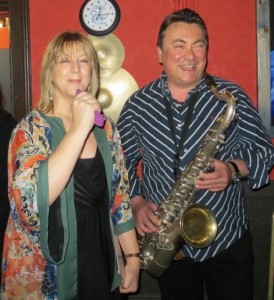Long long ago when the world was young and me, well, I was younger too a band called Steely Dan used to play a song called Pretzel Logic in the days when bands apart from The Archies had to usually write their own songs, then play them on instruments they had to learn and then sing them themselves. I know!!! How fake is that!?!?! It’ll never catch on.
Well it did, because there wasn’t any other way of doing it. People like Frank Sinatra never sang a darned thing they’d ever written because that’s not what they did and so far as I can guess, Elvis and Suzi Quatro didn’t either. Suzi Quattro. I mean, what? As someone who is a little over 21, each time I see this I can’t believe I saw this. It wasn’t just the obvious bra-less ness, (like OMG) or even the leather jumpsuit, or the huge hairy blokes she surrounded herself with (and apparently it was the drummer, I seem to remember, if I got that right). It wasn’t just the fact that back in ’73 this stuff went out on air live at 7:30 on a Thursday on Top of the Pops.

That’s right morality crusaders. Ever wondered why youth street crime went up? Back in the day you could leave your back door unlocked, if you’ll pardon the expression, because every malenky nadsat droog was safe at home trying to memorise every stitch in the seams in the lingering crotch shots the BBC thought appropriate before the watershed. And there were quite a few.
Were they strange times? I don’t know. Like any time, we all thought it was normal, even when we heard stuff like Sparks singing some of the saddest songs I’ve ever heard. It wasn’t just the bloke who played the keyboards and looked a bit like Hitler, or his androgynous brother (how weird was that, man? as we said back then). It was the whole, you know. Thing. We were fourteen or something. Why did we have to deal with stuff like this? I mean, it wasn’t 1918, except for the Souix.
But then, why did we buy it? Because we did. We all bought hugely into the whole sad song laments of Americans dragging thirty (how old? Nobody’s THAT old, man) not least because back before the whole interwebby thing and Wikipedia it wasn’t easy to find out that Ian Hunter was born in 1939.
I’m sorry, I still need to pause to let the horror of that statement go away a bit. “I got out my six string razor and hit the sky.” As we said back then, what does that even mean? Did we ever listen to the words when we heard bands like Eagles, singing coked-out dead-end laments like Desperado and Hotel California? How did that resonate with someone less than half their age, living 5,000 miles away on an estate in Trowbridge? Because it did.
Probably it meant just the same as it means now. The words change but the feeling doesn’t. Someone said to me yesterday, “you’re good with words when you speak. But when you write it down it’s shit. Sorry.” And sometimes, she’s right. I can’t catch that feeling, the way the music made us feel, the way it probably makes younger people feel now. Same things, different words. The same feeling, just a different way of saying it. I thought that as we sat on our bar stools as the music played. This hasn’t changed in three decades, for either of us.
For me, it was always Deacon Blues. Back before I had to do something about un-becoming the expanding man in the opening line (yes I did, yes you can, buy the programme…) Steely Dan’s song did it for me. It got in my head. It became my anthem. I don’t drink scotch whisky all night long. Not for years. I don’t drink drive. But I sometimes think the real thing I should do is learn to work the saxophone and play just what I feel. I’ve been called many names when I’ve lost, usually short ones but they still don’t call me Deacon Blue. There are days, more often nights, when I wish they did. Somewhere in that parallel universe, sometimes, just sometimes when the nights are getting longer and the apple wood smoke is heavy on the ground, when the winter starts to feel its way through your clothes, somewhere they still do.
And pretzel logic? Oh, you know how that works. Or maybe you don’t, if you’re lucky. It’s late and the words make perfect sense at the time and they curl back on themselves and make their own sense, in a big circle, like one of those who was that Dutch guy who did the drawings of lizards running upstairs in a circle. You want another? You drive here? You know how that thinking works and where it’s going, at least until you sober up.
So as The Archies used to say, pour a little sugar on it, baby. Just pour a little sugar on it. Yeah, yeah, yeah.


